#Maiden Astraea
Explore tagged Tumblr posts
Text
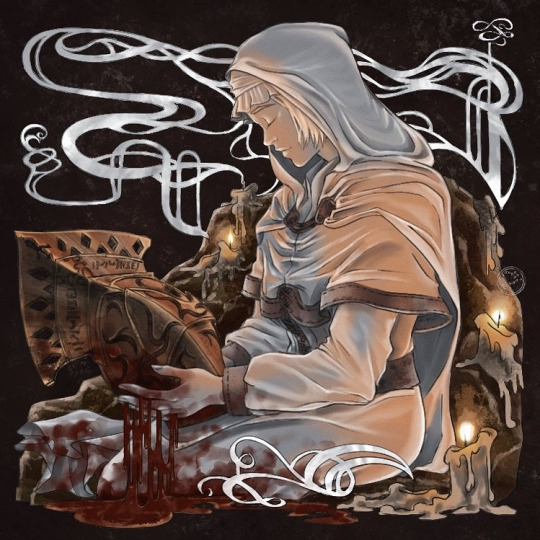
Maiden Astraea🖤
255 notes
·
View notes
Text
Shunsuke Kida - Maiden Astraea
60 notes
·
View notes
Text
Maiden Astraea and the Grief of Lost Faith
Many Souls fans liken the Maiden Astraea fight in Demon's Souls to Great Grey Wolf Sif in Dark Souls, describing both as tearjerkers that made them "feel like the bad guy."
The comparison always rubbed me the wrong way—not because it was misplaced or dishonest, but because it was shallow.

It centers how the player feels, and only that. To be fair, this is an understandable response, and definitely an overt part of the text. Against both Astraea and Sif, the player's success in combat, which has thus far been their primary means of progress, is now being scrutinized in a way that casts them unfavorably. They're being forced to reckon with the personhood of the enemy, with their enemy's good intentions and noble virtues.
Suddenly the assumption underpinning most video games—that your actions are good because they're yours—is overturned, and the mechanical rewards for combat are now complicated by emotional punishment. You're fighting a good person, and so you, the player, might just be a bad person.
This is very much in tune with the video gaming zeitgeist of the early 2010s. Dark Souls released just a year before Spec Ops: The Line, which does this same trick on an enormous scale, to well-deserved critical success. Players are placed in the mind of a paranoid American soldier in the Middle-East, and slowly slip into moral depravity as they go from "fighting terrorists" to "suppressing insurgents" to dropping white phosphorous on a refugee camp.
"Are we the baddies?" was really quite a novel idea at the time. It was novel enough that it could be the driving thesis of an entire game.
Perhaps this is why it still stands as the prevailing sentiment around Maiden Astraea—especially when Great Grey Wolf Sif, whose boss fight falls pretty squarely in line with the trend, is such an immediate point of comparison.
But the fight with Maiden Astraea and Garl Vinland is saying something more than that, I feel. The comparison to Sif is what crystallized this vague feeling into a clear, certain thesis for me. It's not just that the player is set against someone "good" or "noble" in Astraea, in the way that Sif is a good dog.
Astraea sets the player against someone human, who is experiencing the height of human loss: the loss of faith.

On some level, all of Demon's Souls is about our human yearning for the sublime, be it supernal or infernal, and the horrible failure that comes when we reach too far.
King Allant reaches for sublime power. In so doing, he achieves a new perspective that shatters his previous understanding of the world—including the values of feudalism and nationalism that drove him to seek power in the first place.
Sage Freke reaches for sublime truth. He believes that with knowledge that is normally forbidden to mortals, he can achieve the just and equitable world that is normally denied to mortals. In the end, however, he fails to consider his own mortal limitations, and he succumbs to the influence of the demon souls.
So on and so forth. The pattern is a familiar one. As Arthur Machen says in his supernatural horror story, "The White People," true sin comes in the "attempt to penetrate into another and higher sphere in a forbidden manner." This plays out with many key characters of Demon's Souls, each one exploring this cardinal sin from a new angle.
Saint Astraea does this too, yet she does it from an angle that I, as a former Catholic, find uniquely sympathetic. It begins when she reaches out for God, and catches only empty air.

"Dear Lord, you are too cruel... You have abandoned us. Is that not punishment enough?"
It's never stated what exactly causes this realization in Astraea—that the God of her world is a distant watchmaker at best, a cruel absent parent at worst. It could have been a direct revelation, such as King Allant received from the Old One, but this doesn't seem likely.
From what the text offers us, I think that Astraea's faith was broken by the Valley of the Defilement itself.
We hear from Biorr that King Allant "fought vigilantly against the vile and depraved," and we see through Yuria's torture that these labels were used for people on the fringes of society, to justify their persecution. Surely this extends also to the "lost and ill-fortuned souls" who were driven to the Valley of Defilement. The land was presumably called the "Valley of Defilement" well before the demon scourge broke out, and so it's the inhabitants themselves—the poor, the diseased, the unwanted—who are the "defilement." Them, and the rubbish and waste that are disposed of there.
The fact that we see aborted fetuses at various points throughout the Valley, mingled with the muck and the refuse and the remains of animals, speaks to the dire state of living there. As the filthy beggar woman says, it's "all the rot of the world, living or not," and it leaves no room for sanity or dignity.
Whatever can be said of the exact circumstances that produced this, or of the land itself, the fact remains that the misery of the Valley's inhabitants is of decidedly human origin.
Bear this in mind when you consider that the Church of Demon's Souls sends missionaries there—as if the Valley folk were suffering from some natural calamity, and not from the malice of the ruling class.
Perhaps that's all the Church could do. After all, the real-life Catholic Church has always been a powerful political entity, but never have they been able to erase poverty or prejudice, or directly stop a monarch from doing something. The same must apply to the definitely-not-Catholic Church of this fictional world, which is pretty committed to realism in that regard.
But even so, it should come as no surprise that every missionary who entered the Valley of Defilement was killed, either by the people or by the land itself.
These missionaries come from the very society that drove the Valley's inhabitants to such inhumane lows. How would they, who live in relative comfort, know how to navigate this treacherous hellhole? And why would anyone accept charity from the hand that beats them down?

So when Saint Astraea enters the Valley of Defilement, full of genuine compassion and goodwill, what does she see?
She sees the sheer magnitude of human suffering, the depth of the squalor, the inhumanity that it represents... and no relief from anywhere. Not from the Church she serves, and not from God on high. Not even in this end-of-days scenario, when demons walk the earth and miracles are witnessed again, does God's supposed mercy reach the Valley.
Saint Urbain might be a deluded, bigoted fool, but he might not be entirely wrong when he calls the people of the Valley "those left behind by God." Perhaps all of mankind has been left behind, and only in the Valley of Defilement is that truth laid bare.
What can anyone do in the face of such a horrible truth?
If you don't run away from them, how do you answer people who are suffering and dying on this scale? If they need miracles, and God does not provide, what do you do?
These questions don't pertain solely to the fiction of Demon's Souls. These are questions that have echoed across human history, philosophy, theology, and myth. Reckoning with the impossible scale of human suffering—the inevitability of it, the ubiquity of it, the horrible depths of it—has been the preoccupation of our greatest thinkers for, well, pretty much all of our time on this planet.
Even when some of us arrive at an answer, it's never a wholly satisfactory answer, and it's usually contingent upon an existing framework of values and beliefs. The Pope says one thing, the Dalai Lama says another, so on and so forth, and the greater share of humanity continues to suffer all the while.

As for Astraea's answer, I'll once again quote the prologue to Machen's "The White People":
"[H]oliness works on lines that were natural once; it is an effort to recover the ecstasy that was before the Fall. But sin is an effort to gain the ecstasy and the knowledge that pertain alone to angels, and in making this effort man becomes a demon."
She does this quite literally. She cannot access the power of God, so she accepts a demon's soul, and uses its power to bring relief to the Valley of Defilement.
Because this power is infernal, not supernal, she cannot purify the foul stagnant waters of the swamp, nor can she cure the diseases of the poor. Rather, she gives the Valley's inhabitants an affinity for filth and disease; it becomes their sustenance rather than their bane, their strength rather than their weakness. The natural order is inverted completely.
This is why Astraea is "the most impure demon of all." Her demonic power imitates the divine mercy that she longs for, yet the results couldn't be more different—perhaps, also, because she extends her mercy to those deemed impure themselves. The description of the spell Death Cloud, made from Astraea's demon soul, says as much.
And in a cruel twist of irony, Astraea's damnation does not ease the pain and misery of the Valley's inhabitants. The Archstone before Astraea's boss room reads, "The poor journey to this rotten place to offer their souls [to Astraea] so that they might be freed from their suffering." They might be sustained by the Valley's filth now, but they are still suffering from it.
They find lasting relief only in giving up their souls to feed Astraea's power, thus perpetuating the whole horrible system.
Astraea's wounds bleed perpetually, never closing, never healing. Her blood fills the grotto where she sits as an object of adoration, still performing the functions of a religion that failed her. All she can say, over and over, is that God has abandoned her, abandoned the world—she has no fewer than three separate voice lines saying this.
Notably, though others might call her a witch, she never turns to "witchcraft" in the archetypal sense. Her grief never turns to anger; she never rails against God. She never discards her clerical robes, she never dons a pointed hat, and she never casts curses or spells. She is stuck as Maiden Astraea, Saint Astraea, frozen in a state of loss.
The moment of her trauma, of her loss of faith, is extended into perpetuity. Even the boss music reflects this:
youtube
The melody loops and loops and loops, and any resolution feeds immediately into another loop. It's a textural piece more than anything, but you can't help getting lost in the endless repetition of that simple, incomplete melody.
Astraea's knightly bodyguard, Garl Vinland, also seems to be lost in unending grief. He rests in a pile of corpses, never removing the armor that is the sign of his holy vow. If you kill Astraea before him, he simply stands in shock, unable to move or speak or act. Unable to move on.
Anyway, uhh...
All of this? A wound that never heals, a grief that never ends?
Yeah, that's... that's how it feels to have lost your faith.
That's how I feel, anyway.
As you probably gathered already, this reading of Astraea is informed by my perspective as an ex-Catholic, now agnostic. My own loss of faith was very painful. It spanned the entire length of my adolescence, into young adulthood—as my rational mind was growing, my queerness was rising to the level of conscious feeling, and nearly every support system in my life was failing me.
My parish community was run by hypocritical bullies, and harbored an actual, real, pedophile priest, but still I reached out to God for answers. I looked to theology instead of community, to study and meditation and prayer. I looked for answers to my own suffering, and to the world's suffering. I looked for resolutions to all the insane contradictions. I looked for something to sustain the faith that was being asked of me. Surely God wouldn't abandon me, even if my parents and teachers and peers were all against me.
In the end, it all fell out from under me. I found plenty to admire, but even more to doubt and disdain.
I couldn't stop loving God or Jesus, but now it felt like they were dead at my feet, and that rot and maggots were visibly eating the corpses—and that everyone around me was politely pretending that they weren't.
I remember crying to my mother when my dog died around this time, and she tried to comfort me with talk of heaven, and I was just inconsolable. All I could say, as I cried for this sweet little animal who had loved me, was that I was "scared for the world." That nothing could ever possibly be right, nothing in the whole wide world, if God weren't there. I could no longer imagine a good, just end to any human life or endeavor, because the only end was death.
I've since recovered from that very low point in my life, and grown into a much happier adult. The grief never left me entirely, though.
The loss of my faith is likely the single most impactful event in my life. Because I'm no longer Catholic, I was able to transition, and I was able to find friends and partners who mean everything to me...
...but because I was Catholic, and still feel that small aching hole inside, I've spent the greater part of my life immersed in art, literature, and philosophy that explores the space where God once lived in my heart. I've spent years studying apocalyptic religions and their various underpinnings—political, social, theological, and narratological. I've become a literary critic, and a scholar of Victorian religion. My first published article is about how Elizabeth Gaskell positions the Victorian working class as an "apocalyptic demographic."
My favorite musical is The Hunchback of Notre Dame. My favorite author is Arthur Machen. My favorite video game is Demon's Souls. The grief that I feel for my lost faith is hardly all of me, but it has touched every part of me.
So when people who have never experienced such grief compare Maiden Astraea to the big sad wolf from Dark Souls, I feel a little frustrated. As a character and a symbol, she's so much more than that.
I could go on, and resolve this rambling, messy, emotional essay in some kind of critical statement about Demon's Souls... but I think I'll just leave it at that. I suppose I just wanted other people to understand what I feel, to see what I see, and to know why this video game is special to me.
If you made it this far, thanks for reading. Umbasa.

#Demon's Souls#Maiden Astraea#video game analysis#personal essay#religion#Catholicism#Apostate#ex Catholic#FromSoftware#Dark Souls#Youtube
38 notes
·
View notes
Text

Maiden Astraea.
#maiden astraea#demon's souls#demons souls#soulsborne#dark souls#fromsoft#fromsoftware#soulslike#elden ring#bloodborne#concept art#soulsborne concept art
16 notes
·
View notes
Text
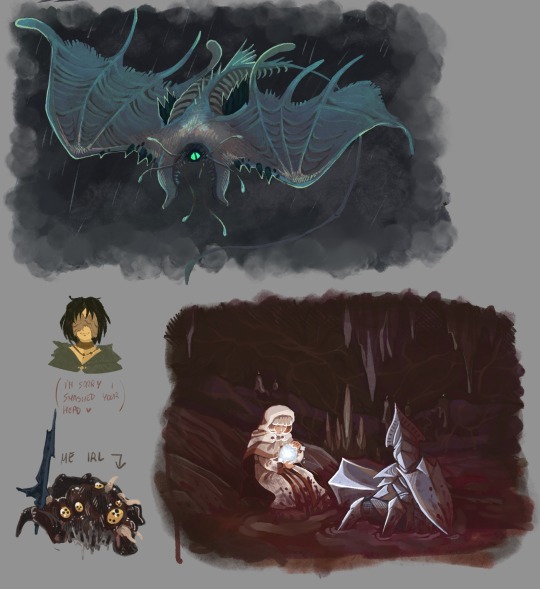
I have finally played Demon's Souls !!!! (Remake) and so ends my soulsborne collection......
The game was super easy eiwnnsn, maybe having all of the bosses except like, 2, being gimmicks... had a fun time nonetheless!! The Nexus is so cool and my new fave hub..... and hugh orh djjjj ejjjkk errrr i m... the music hasnt particularly struck except One who craves Souls and Maiden Astraea which will feed my ears for the next months on loop.
Time to plat it ig 🐓
34 notes
·
View notes
Text

maiden astraea 223/365 - 17/05/24
3 notes
·
View notes
Text


1 note
·
View note
Text
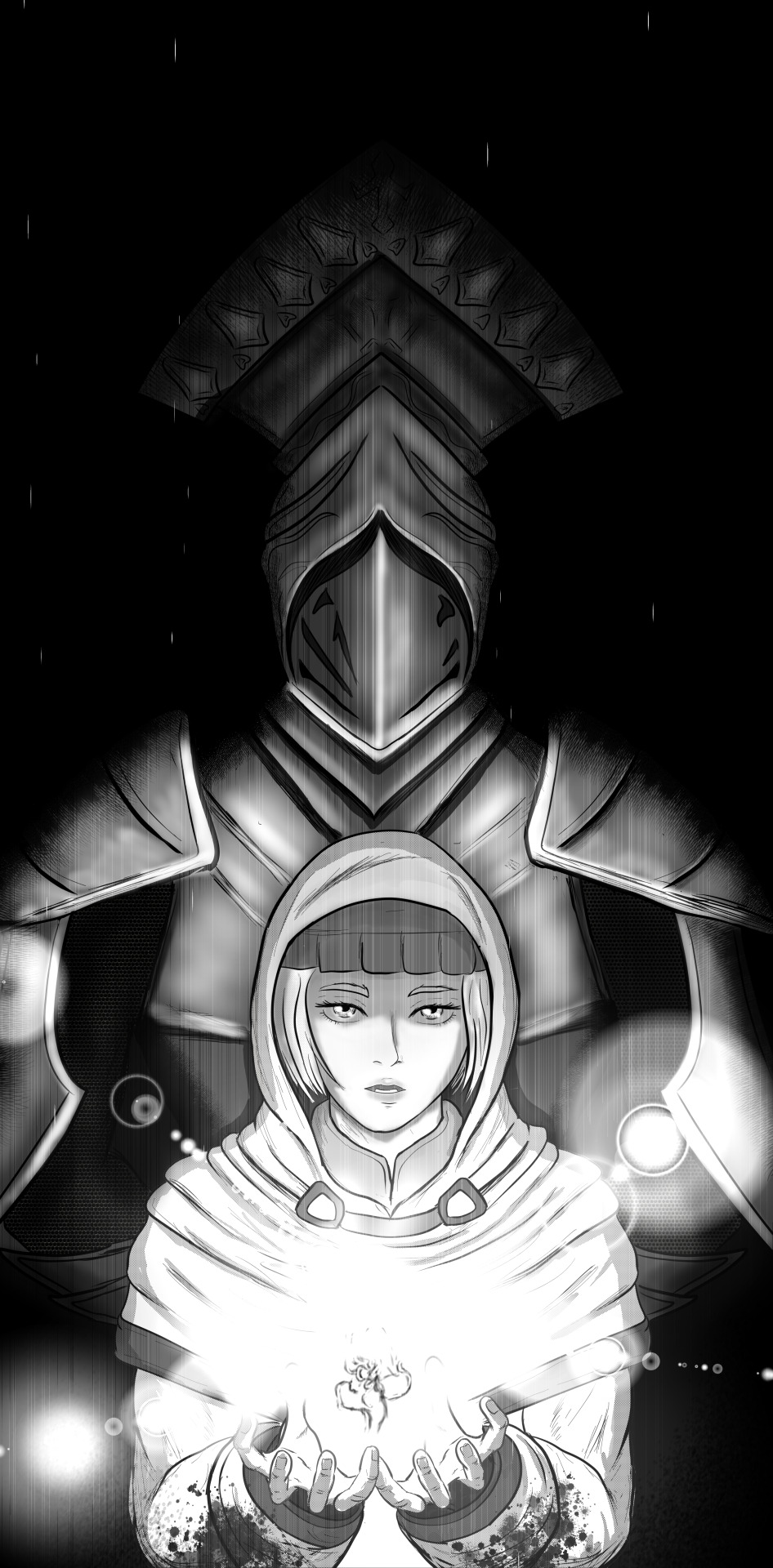
"How dare you persist in intruding our haven! You abandoned us long ago, what right do you have?!!"
---
Maiden Astraea and Garl Vinland from Demon's Soul
#art#character#artists on tumblr#character art#drawing#demon's souls#dark souls#maiden astraea#garl vinland#soulsborne#fromsoftware#fromsoft games#fromsoft fanart#elden ring#sekiro#fromsoft#glendy lucast
105 notes
·
View notes
Text

Ἀστραίᾱ (Astraea/Astraia, the Star Maiden),
Greek goddess of justice and innocence. You probably know of her, not by her name, but in her capacity as the constellation Virgo. In mythology, she long lived among humans on earth, but became disallusioned with the corruption and greed that ran rampant and fled back to the heavens. She was then honored in the sky as the aforementioned constellation. She is closely associated and sometimes equated with Dike, of course, but also Nemesis. This shows that she is associated with righteous indignation and the fight against greed and cruelty. She is generally considered to be the daughter of Astraeus and Eos, or sometimes Zeus and Themis.
As a worshipper of hers, I personally see Astraea as a protector of the young and innocent, a comforter and ally of the marginalized and those hurt by the corrupt and unfair, and the patron of activists and protesters. She is a kind and gentle goddess, but a fighter who demands justice for all. When you are downtrodden and broken and you feel that nobody will listen to you, Astraea will. She will listen and tend to your wounds and tell you that she believes you, and she’s so sorry about all of the cruelty you have had to endure, and that you deserve justice and kindness and safety.
When I picture her, I envision sunsets and the comforting feeling of starry nights. I see fire, I see gold, beautiful and soft but strong and resilient. She is the clean feeling of fresh sheets and a shower, she is every color of the sky. She is a reminder that purity does not mean weakness, that innocence does not mean silence and complacence or inability to stand up for oneself, that youth does not mean unintelligence and that optimism does not mean ignorance or naïveté. To be virtuous is not to be utterly disconnected from cruelty, it is to fight against it, to do whatever you need to do to make things better.
It makes me sad that there is so little knowledge of her surviving, that I’ve only actually met 2-3 other people who worship her during my time in online helpol communities. She is such an incredible goddess and she has brought me so much comfort. That’s why I’m making this post. I wanted to share her stories with other people, and I wanted to share the UPG I’ve gathered in the time I’ve spent with her. I’ve been posting my art of her because even if I don’t think it’s perfect I want there to be more about her on the internet, more art to look at, more writing to read. I hope some people read this post and enjoy it and do some research of their own. That would be so lovely.
#hellenic polytheism#helpol#astraea#astraia#hellenic devotion#hellenic pagan#hellenic polythiest#hellenic worship#goddesses#greek mythology#greek polytheism#pagan worship#greek goddess#maiden goddesses#virgo#astrology#virgo astrology
36 notes
·
View notes
Text
ppl genuinely thinking Miquella was a good person at any point in the game makes me fuckin lose my mind like. Can you read with your eyes and see the text on the screen
#guy whose power is mind controlling people and making them love him#and everyones like surely he will use this power for good#every single demigod and the like are Bad they are all Bad even fucking girlboss Ranni#it is incredible people claim to love the game but cannot understand what is being told to them#this is fucking maiden astraea all over again
2 notes
·
View notes
Text
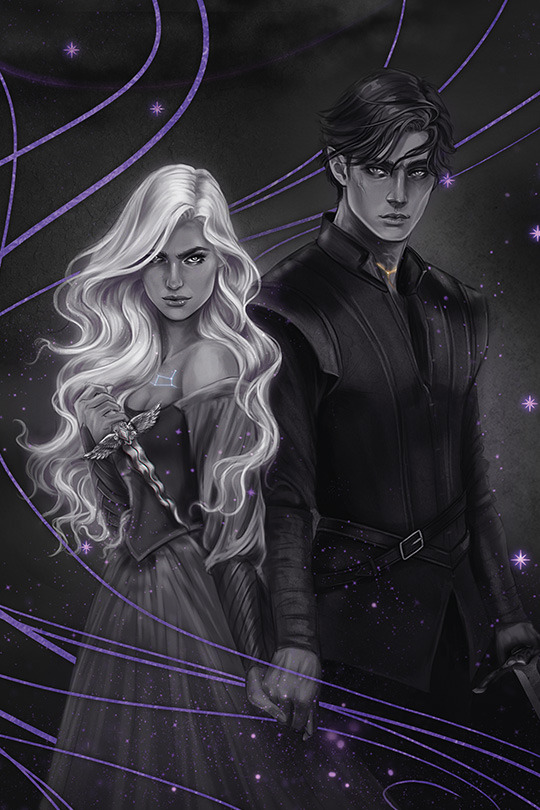
It seems no monster is heartless, and no angel is without sin.
We’re advertising a book for readers of adult romance and fantasy: The Night Is Defying by bestselling author Chloe C. Peñaranda
The character art is by Alice Maria Power.
WHAT IT’S ABOUT
From New York Times bestselling author Chloe C. Peñaranda comes the second volume in the Nytefall series.
In the aftermath of the deadly Libertatem trials, star-crossed lovers must face a choice between following their hearts or saving the world.
Newly found star-maiden Astraea is determined to keep her freedom and recover her memories. While Nyte tries to regain control of the vampires hungry for bloodshed, a sinister plan by his brother to overthrow him sparks a dangerous feud. Time is running out, and history seems doomed to repeat itself as they embark on a journey filled with magic and unforgettable romance.
#Booklr#New books#Nytefall trilogy#Chloe C. Peñaranda#The Night Is Defying#The Stars Are Dying#Tbr#Bramble Books#Bramble Romance#Fantasy#Fantasy Romance#Romance#Bookblr#bookworm#literature#library#bookshelf#bookish
557 notes
·
View notes
Note
this valentine’s day i would like to profess my undying, ardent love for the callistephus chinensis (china aster)! the flower that contributed to me giving myself my name!!


not only are they a part of the (superior in my opinion) family of asteraceae, but also the genus’ (callistephus) etymology is derived from the greek words “kalli-” meaning “beautiful” and “stephos” meaning crown. they have beautiful chrysanthemum-esque blooms and come in all sorts of colours (my favourites being purple and white).
straying away from taxonomy a bit, asters in general are one of the birth flowers for september (my birth month!). they symbolise hope, faith and wisdom. and according to greek mythology, astraea (“star maiden”: goddess of purity, justice and innocence) cried because there weren't enough stars in the sky and when her tears hit the earth, they caused asters to bloom! continuing to follow the greek myth, she was the last goddess to live amongst the humans after the golden age, symbolising the decline of hope for humanity along with the decline of the ages. she left and became the constellation virgo i believe!
some more fun fun facts, asters have a most frequently observed number of n = 9 haploid chromosomes (2n = 18 for diploid). the numerology of the word “aster” also happens to be nine and guess what! september is the 9th month of the year! is it obvious i really like the number 9? almost as much as i love asters <3
String identified:
t at’ a t g, at t cat c (ca at)! t tat ctt t gg a!!
t a t a at t ( ) a ataca, t a t g’ (cat) tg t g “a-” ag “at” a “t” ag c. t a at cat- a c a t c ( at g a t).
tag aa ta a t, at ga a t t t ( t t!). t , at a . a accg t g tg, ataa (“ta a”: g t, tc a cc) c ca t 't g ta t a ta t t at, t ca at t ! ctg t t g t, a t at g t agt t a at t g ag, g t c at ag t t c t ag. t a ca t ctat g !act, at a a t t = 9 a c (2 = 18 ). t g t “at” a a t a g at! t t 9t t t a! t a t 9? at a c a at <3
Closest match: Caligus rogercresseyi isolate FCH chromosome 9 Common name: Sea louse
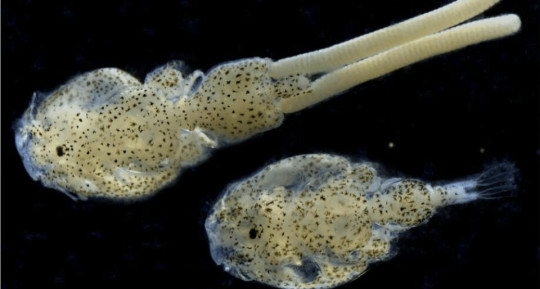
#tumblr genetics#genetics#valentines day#asks#requests#sent to me#thisisasteresque#flowers#plants#china aster#parasites#ocean#sea louse
2K notes
·
View notes
Text



Smriti, the keeper of memories. She could never forget....the weight of her dreams. Chasing the white coat, through sleepless nights she fought. Yet in the maze of ambition, it was love her soul sought. A love so fierce, it could break her apart.
Matching themes with @chal-jeete-hai and @kulfi-waala <3


Celesteablack, born of starlight and ancient grace Celeste, a heavenly glow in endless space. Astraea, the maiden of the starry night.... she's bound to shine, forever Bright.


125 notes
·
View notes
Text
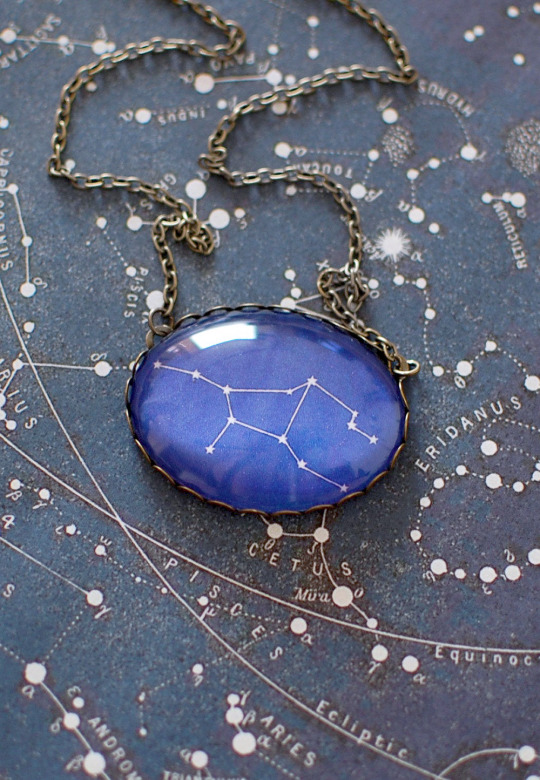

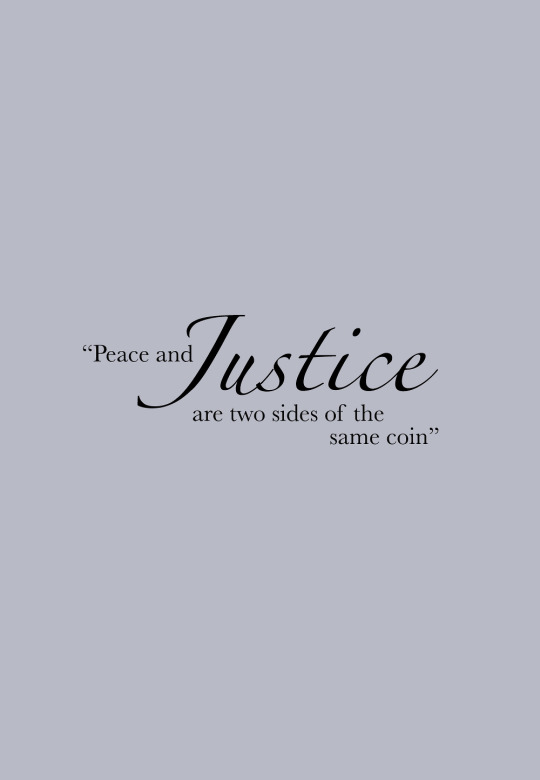
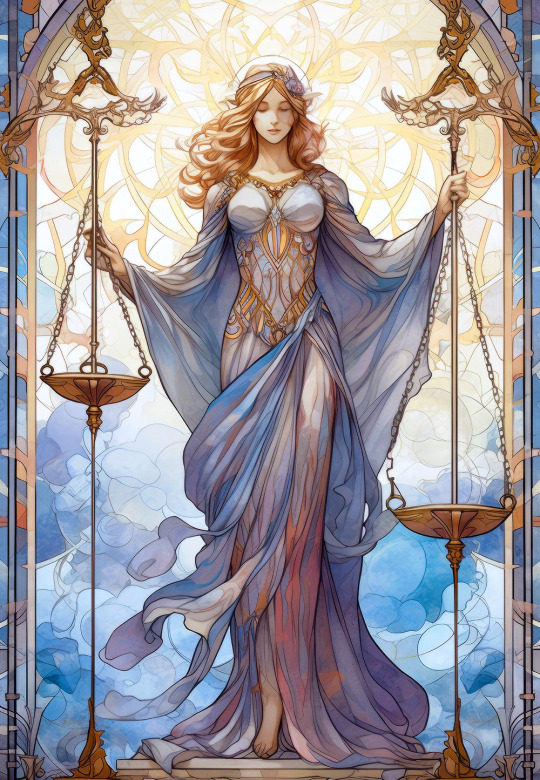
The Evermore Grimoire: Greek Mythology
Astraea (Ἀστραία, meaning 'star-maiden') was the virgin goddess of justice, innocence, purity and precision in greek mythology. She was also associated with Dike (goddess of justice) but not to be confused with Asteria (goddess of the stars). Astraea, the celestial virgin, was the last of the immortals to live with humans during the Golden Age, one of the old Greek religion's five deteriorating Ages of Man. According to Ovid, she abandoned the earth during the Iron Age. Fleeing from the new wickedness of humanity, she ascended to heaven to become the constellation Virgo. The nearby constellation Libra reflected her symbolic association with Dike, who in Latin culture as Justitia is said to preside over the constellation. In the Tarot, the 8th card, Justice, with a figure of Justitia, can be considered related to the figure of Astraea on historical iconographic grounds. According to legend, Astraea will one day come back to Earth, bringing with her the return of the utopian Golden Age of which she was the ambassador.
711 notes
·
View notes
Text

Romance Club MC's as Greek deities:
Audrey as Astrea:
Titan-Goddess of justice, innocence and purity ⚖️🌹✨
Astraea, also known as Astrea or Astraia, is the virgin goddess of justice, innocence, purity, and precision. Often called the "Star Goddess" or "Star Maiden," Astraea was a cherished deity who embodied all that was virtuous in the world. She is best known as the last immortal to live among humans during the Golden Age. Sadly, this utopian era did not endure. Horrified by humanity's decline, Astraea witnessed misery and wickedness pervade, eroding the innocence once prevalent. Among the last to remain with humans, she eventually departed when redemption seemed impossible, vowing never to return. The Ancient Greeks, along with many other cultures that have since recounted Astraea's story, hold onto the belief that the goddess will one day return to Earth, heralding a new Golden Age for mankind. Audrey was selected to embody Astraea due to her apparent link to the goddess, a connection that remains a mystery to this day (update).
File Source | BeautifulCome | cr.nana | malbgt | tavernytkr |
Other skin colours under the cut:



#romance club#romance club game#клуб романтики#Romance Club MC's as Greek deities#greek mythology#rc mc#greek goddess#rc edits#rcd edits#rc audrey#rc astrea's broken heart#rc ABH#astrea#goddess of innocence#goddess of purity#rc astraia#rc astraea#goddess of justice
84 notes
·
View notes
Text

Virgo – The Ancient Greek Myth Behind the Zodiac Sign
Of all the twelve zodiac signs Virgo is maybe the most misunderstood, owing to the confusion of the translation of the word virgo, which, in Latin, means self-contained or self-sufficient and originally applied to unmarried women, including mothers.
The word Virgo should not be interpreted as a woman who is a virgin but more as a nurturing woman; mother to all of the Earth.
The following excerpt, taken from the gnostic text, ‘The Thunder, Perfect mind’, where the Greek goddess of wisdom, Sophia, states who she is, goes along way in helping to clear up the misinterpretation of the word virgo, or virgin and shows us that being a virgin has nothing to do with chastity :
‘For I am the first and the last. I am the honoured one and the scored one. I am the whore and the holy one. I am the wife and the virgin. I am the mother and the daughter. I am the members of my mother. I am the barren one and many are her sons. I am she whose wedding is great, and I have not taken a husband. ‘
The goddesses associated with Virgo are thought to be fertility goddesses or goddesses of the harvest which ties in with the Greek myth of Demeter; Greek goddess of the harvest, as the constellation Virgo is thought to be a woman holding a spike of corn, so resonating with the Harvest Mother myth. Portrait of a woman: Ruth (Ruth, by Francesco Hayez) Undated.
63 notes
·
View notes